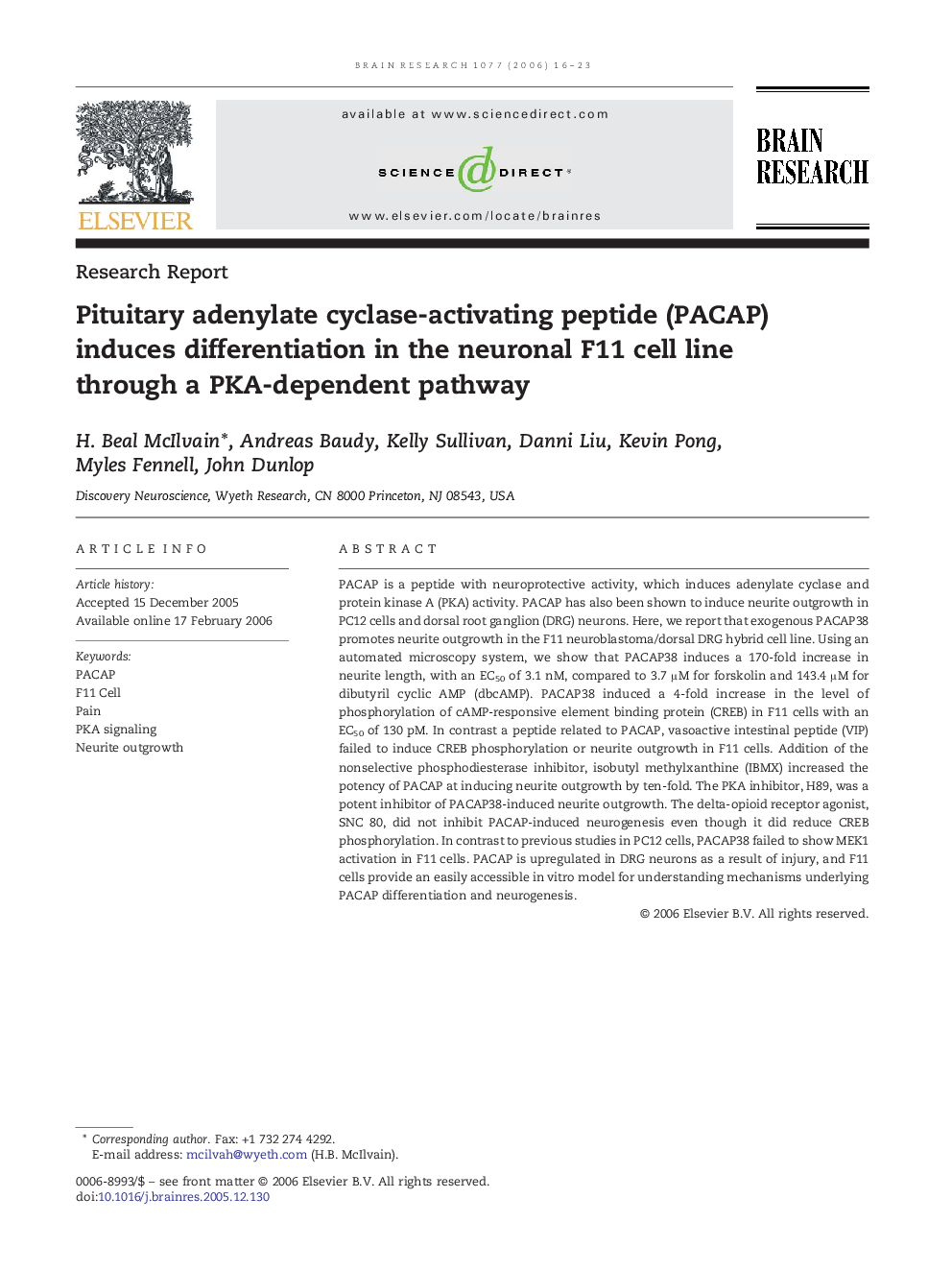| Article ID | Journal | Published Year | Pages | File Type |
|---|---|---|---|---|
| 4333190 | Brain Research | 2006 | 8 Pages |
PACAP is a peptide with neuroprotective activity, which induces adenylate cyclase and protein kinase A (PKA) activity. PACAP has also been shown to induce neurite outgrowth in PC12 cells and dorsal root ganglion (DRG) neurons. Here, we report that exogenous PACAP38 promotes neurite outgrowth in the F11 neuroblastoma/dorsal DRG hybrid cell line. Using an automated microscopy system, we show that PACAP38 induces a 170-fold increase in neurite length, with an EC50 of 3.1 nM, compared to 3.7 μM for forskolin and 143.4 μM for dibutyril cyclic AMP (dbcAMP). PACAP38 induced a 4-fold increase in the level of phosphorylation of cAMP-responsive element binding protein (CREB) in F11 cells with an EC50 of 130 pM. In contrast a peptide related to PACAP, vasoactive intestinal peptide (VIP) failed to induce CREB phosphorylation or neurite outgrowth in F11 cells. Addition of the nonselective phosphodiesterase inhibitor, isobutyl methylxanthine (IBMX) increased the potency of PACAP at inducing neurite outgrowth by ten-fold. The PKA inhibitor, H89, was a potent inhibitor of PACAP38-induced neurite outgrowth. The delta-opioid receptor agonist, SNC 80, did not inhibit PACAP-induced neurogenesis even though it did reduce CREB phosphorylation. In contrast to previous studies in PC12 cells, PACAP38 failed to show MEK1 activation in F11 cells. PACAP is upregulated in DRG neurons as a result of injury, and F11 cells provide an easily accessible in vitro model for understanding mechanisms underlying PACAP differentiation and neurogenesis.
